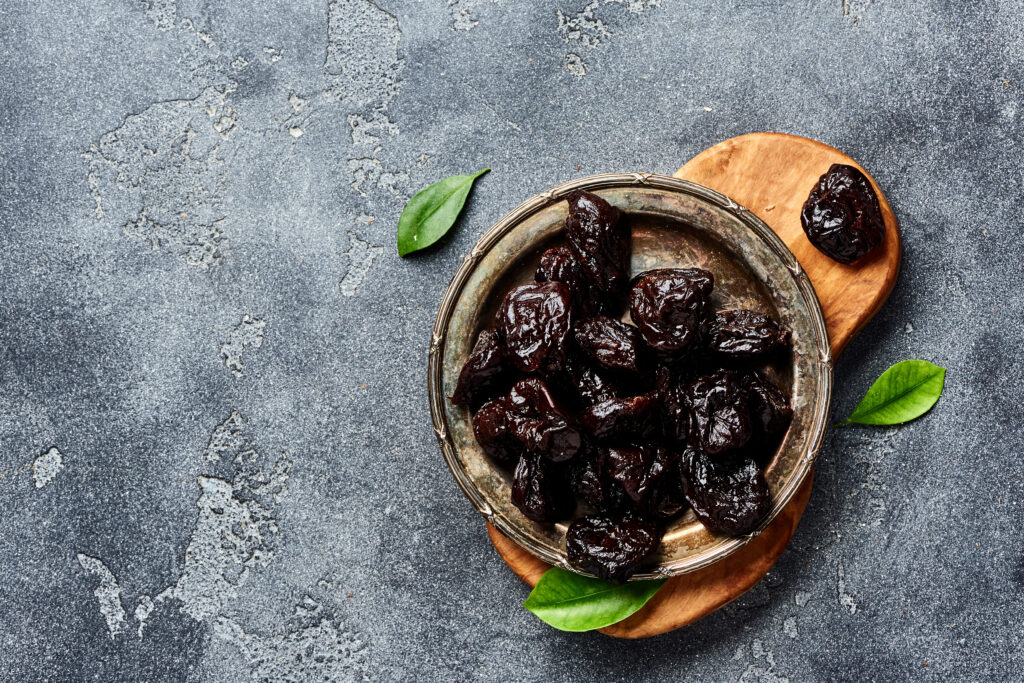
If you suffer from constipation, you may be searching for the ideal foods to relieve it. Causes can range from dehydration and poor diet choices, medications prescribed by healthcare providers, illness in your gut or mental disorders - or all these factors combined!
Constipation-reducing foods, as well as drinking plenty of fluids such as water or other sources, are essential.
Prunes
Prunes are often touted as nature's solution for constipation. Their abundance of insoluble fiber helps ease stool passage quickly, and makes an excellent addition to a balanced diet.
Also rich in sorbitol, which draws water into your colon and loosens your stools.
Prunes are also an excellent source of antioxidants such as anthocyanins. Prunes' anthocyanin content may help protect the gut lining, helping keep bowel health at its best.
Whole Wheat Bread
Whole wheat bread is an excellent source of dietary fiber, which can relieve constipation and prevent bowel issues. Furthermore, its wide array of nutrients contribute to overall wellness for body and mind.
Before purchasing packaged bread, always read its ingredients list to ensure that whole wheat flour is listed as its first ingredient.
Refined grains like white flour and rice differ significantly from their whole-grain counterparts in terms of nutrition. Their starchy endosperm has been removed, leaving behind only its starch-rich endosperm to provide starch-based energy for starchy endosperm to digest. These refined grains also lack germ and bran which provide essential nutrition in their kernel.
Beans
Beans contain both soluble and insoluble fiber, helping bulk up stool for easier passing. A half cup of cooked lentils provides nearly eight grams, while one cup of navy beans delivers 19 grams.
Beans are an excellent source of protein, an essential nutrient our bodies rely on to repair themselves and maintain good health. Furthermore, beans contain antioxidants which may lower the risk of heart disease or other health conditions.
Pears and apples with peels are especially helpful in relieving constipation symptoms, offering both insoluble and soluble fiber sources as well as having high water contents.
Grapes
Grapes are an excellent source of fiber and water, both of which help regulate bowel movements. Furthermore, grapes contain sorbitol which acts as an all-natural laxative.
Dietitian Kellie Gragg notes that grapes can help alleviate constipation while also supporting heart and digestive health. As an antioxidant source, grapes may reduce inflammation while protecting against heart disease.
These veggies are packed with vitamin C, which helps strengthen immunity. Furthermore, they have less than one gram of fat per cup and high potassium concentration.
Rhubarb
Rhubarb is an irresistibly tart vegetable packed with an abundance of nutrition and health benefits, especially its anthraquinone compounds, which have long been used to relieve constipation symptoms.
Oatmeal is also an excellent source of insoluble fiber, and has been shown to prevent hemorrhoids, an uncomfortable condition often experienced when one experiences constipation.
Anthraquinone glycosides found in rhubarb have been discovered to reduce the amount of water that the colon reabsorbs, helping ease constipation and regulate its microbial balance in the intestine.
Blackberries
Berries are packed with fiber, making blackberries especially effective at providing relief for constipation. Furthermore, vitamin C's soothing effects help soften stools and encourage regular bowel movements.
Blackberries contain powerful antioxidants that can boost brainpower and memory retention, while their high vitamin K content provides aid for blood clotting.
They contain phytoestrogens that support women's health. This natural alternative to hormone-based medication could help women who experience irregular menstruation cycles or heavy menstrual bleeding symptoms.





